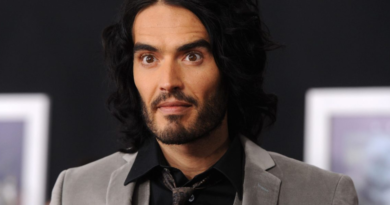Florida judge finds Tesla, Elon Musk knew of defective Autopilot system
There is “reasonable evidence” to conclude that Tesla and its officers, including CEO Elon Musk, knew its vehicles had defective Autopilot systems but still allowed the cars to be driven in areas “not safe for that technology,” a Florida judge found.
The ruling last week from Judge Reid Scott, in the Circuit Court for Palm Beach County, means the family of a man who died in a collision while his Tesla’s Autopilot was engaged can go to trial and seek punitive damages from Tesla for intentional misconduct and gross negligence. Reuters first reported the news.
The hit to Tesla comes after the electric vehicle maker won two product liability cases in California earlier this year over the safety of its Autopilot system. Autopilot is Tesla’s advanced driver assistance system that can perform automated driving tasks like navigating on and off highway ramps, cruise control, lane changes and automatic parking.
The Florida lawsuit was the result of a 2019 crash north of Miami. Owner Stephen Banner’s Model 3 drove under the trailer of an 18-wheeler that had turned onto the road, cutting off the Tesla’s roof and killing Banner. A trial that was set for October has been delayed and has yet to be rescheduled.
When the case goes to trial, it might reveal new information about the reams of data Tesla collects, information that is usually top secret.
Judge Scott’s finding that managers at Tesla’s top knew of the defects could also mean Musk would have to testify. The judge said that Tesla’s marketing strategy painted the products as autonomous and Musk’s public statements about Autopilot “had a significant effect on the belief about the capabilities of the products,” according to the ruling. The judge pointed to a misleading 2016 video, which Musk was found to have overseen, that purported to show a Tesla being driven completely autonomously by the Autopilot system.
The billionaire entrepreneur was not required to sit for a deposition after a judge rejected the Banners’ argument that Musk had “unique knowledge” of the issues of the case.
The judge compared Banner’s crash to a similar 2016 fatal crash involving Joshua Brown in which Autopilot failed to detect crossing trucks, which led to the vehicle crashing into the side of a tractor trailer at high speed. The judge also based his finding on testimony given by Autopilot engineer Adam Gustafsson and Dr. Mary “Missy” Cummings, director of the Autonomy and Robotics Center at George Mason University.
Gustafsson, who was the investigator on both Banner’s and Brown’s crashes, testified that Autopilot in both cases failed to detect the semitrailer and stop the vehicle. The engineer further testified that despite Tesla being aware of the problem, no changes were made to the cross-traffic detection warning system from the date of Brown’s crash until Banner’s crash to account for cross traffic.
The judge wrote in his ruling that the testimony of other Tesla engineers leads to the reasonable conclusion that Musk, who was “intimately involved” in the development of Autopilot, was “acutely aware” of the problem and failed to remedy it.
A Tesla spokesperson could not be reached to comment.
As Tesla has done in the past, the automaker will likely argue that Banner’s crash was the result of human error. A National Transportation Safety Board probe into the accident found that there was blame to go around — according to the investigation, the truck driver had failed to yield right of way and Banner was inattentive due to over-reliance on Autopilot. But the NTSB also found that Autopilot didn’t send a visual or audible warning to the driver to put his hands back on the wheel, according to Bloomberg.
Tesla’s lawyers may rely on the precedent set in two previous cases this year, from which the automaker emerged victorious.
In April, Tesla secured a win after a California jury determined the automaker was not to blame for a 2019 crash involving Autopilot. Plaintiff Justine Hsu sued Tesla in 2020 for fraud, negligence and breach of contract, but was awarded no damages.
A few weeks ago, a jury sided with Tesla over allegations that Autopilot led to the death of Tesla driver Micah Lee in 2019. The two plaintiffs, survivors of the crash, alleged that Tesla knew its product was defective and sought $400 million in damages. Tesla argued that the crash was the result of human error.
The case — No. 50-2019-CA-009962 — is being tried in the Circuit Court for Palm Beach County, Florida.

